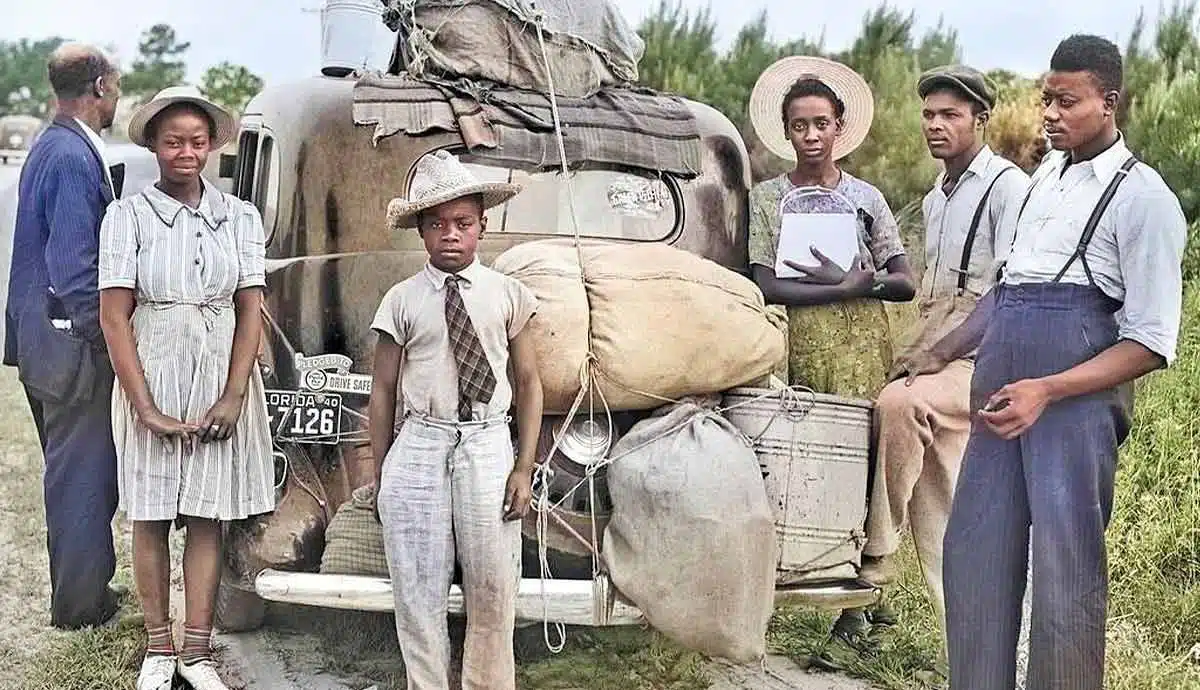Black immigrants have shaped America for centuries, with their stories reflecting both resilience and ambition. From the forced migrations of the transatlantic slave trade to the voluntary arrivals of African and Caribbean professionals, the journey of Black immigrants highlights the enduring quest for freedom, opportunity, and justice.
The Transatlantic Slave Trade: The beginning
The earliest chapter of Black immigration to America was defined by tragedy. Between the 17th and 19th centuries, millions of Africans were forcibly removed from their homelands and brought to the Americas through the transatlantic slave trade. These individuals were not immigrants in the traditional sense, but enslaved people who became the foundation of the African American population.
This forced migration introduced African cultures, languages, and traditions that have profoundly influenced American society. Yet, it also marked the beginning of a long struggle for equality and recognition.
Voluntary migration from the Caribbean
The 20th century ushered in the first significant wave of voluntary Black immigration, particularly from the Caribbean. In the early 1900s, economic hardship, political unrest, and opportunities in the U.S. prompted thousands to leave their island nations for American shores.
Caribbean immigrants settled primarily in urban centers like New York City and Miami, contributing to industries such as domestic service, labor, and eventually professional fields. Prominent figures like Marcus Garvey, a Jamaican-born activist and founder of the Universal Negro Improvement Association, played pivotal roles in advocating for racial pride and self-determination.
The impact of the 1965 Immigration Act
A turning point for Black immigration came with the Immigration and Nationality Act of 1965, which eliminated restrictive quotas that had limited migration from non-European countries. This reform opened the door for increased immigration from Africa and the Caribbean, leading to a new era of diversity within the Black population in America.
African immigrants began arriving in significant numbers, often fleeing political instability, economic challenges, or seeking educational opportunities. Countries such as Nigeria, Ghana, and Ethiopia became major sources of highly skilled immigrants, many of whom excelled in fields like medicine, engineering, and academia.
Modern trends in Black Immigration
Today, Black immigrants make up more than 10% of the Black population in the U.S., according to data from the Pew Research Center. With over 4.5 million individuals tracing their roots to African and Caribbean nations, they represent one of the fastest-growing immigrant groups in the country.
African immigrants, in particular, stand out for their educational achievements. Data shows that they have some of the highest levels of educational attainment among all immigrant groups, with many earning advanced degrees and excelling in specialized professions.
Caribbean communities, meanwhile, continue to enrich the U.S. with vibrant cultural contributions, particularly in music, food, and festivals. Cities like Brooklyn, home to the annual West Indian American Day Carnival, are testaments to the enduring influence of Caribbean immigrants.
Challenges and contributions
Despite their successes, Black immigrants face unique challenges. They navigate a complex identity, often dealing with both racism and xenophobia. In many cases, they must reconcile cultural differences while confronting the systemic barriers that affect all Black communities in America.
Nonetheless, their contributions to the nation are profound. From Shirley Chisholm, the daughter of Caribbean immigrants and the first Black woman elected to Congress, to Nigerian-American novelist Chimamanda Ngozi Adichie, Black immigrants have left an indelible mark on politics, literature, business, and beyond.
A continuing story
The history of Black immigration to the U.S. is a story of endurance and transformation. Each wave of immigrants has brought new perspectives, skills, and cultural richness, reinforcing the global ties of the African diaspora. In doing so, they have broadened the narrative of what it means to be Black in America while pushing the country toward greater inclusivity.

